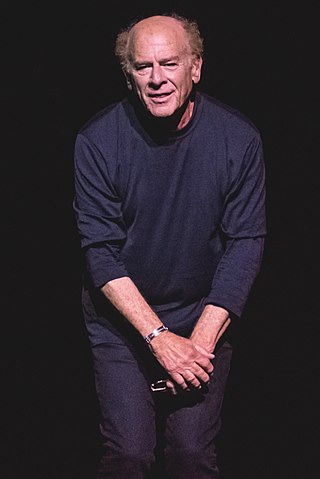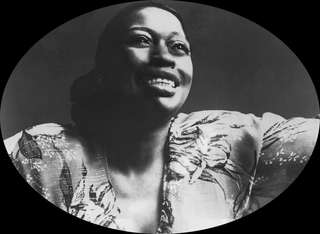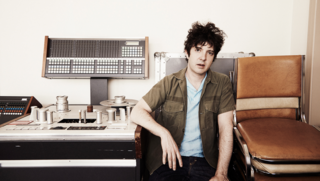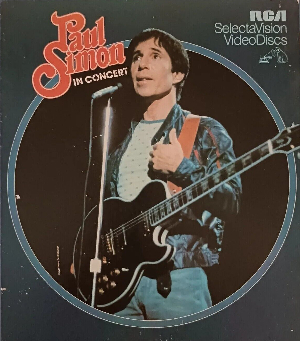Related Research Articles

Simon & Garfunkel were an American folk rock duo consisting of singer-songwriter Paul Simon and singer Art Garfunkel. They rank as one of the best-selling music acts of the 1960s. Their most famous recordings include the three US number ones: "The Sound of Silence" (1965) and the two Record of the Year Grammy winners "Mrs. Robinson" (1968) and "Bridge over Troubled Water" (1970). Other hits include "The Boxer" (1969), "Cecilia" (1970) and the four 1966 releases "Homeward Bound", "I Am a Rock", "Scarborough Fair/Canticle" and "A Hazy Shade of Winter", as well as the 1968 album track "America".

Paul Frederic Simon is an American singer-songwriter. He is one of the most celebrated artists of the twentieth century, with a career spanning six decades. He is among the most acclaimed musicians in popular music and one of the world's best-selling music artists, noted both for his solo work and work with Art Garfunkel. He and his school friend Garfunkel, whom he met in 1956, came to prominence in the 1960s as Simon & Garfunkel. Their blend of folk and rock, including hits such as "The Sound of Silence", "Mrs. Robinson", "America" and "The Boxer", served as a soundtrack to the counterculture movement. Their final album before disbanding, Bridge Over Troubled Water (1970), is among the bestselling of all time.

Arthur Ira Garfunkel is an American singer, actor and poet who is best known for his partnership with Paul Simon in the folk rock duo Simon & Garfunkel. Born in Forest Hills, Queens, New York, Garfunkel became acquainted with Simon through an elementary school play of Alice in Wonderland and sought a partnership. Their combined presence in music began in the 1950s, and throughout the 1960s, the duo of Simon & Garfunkel achieved great chart success with tracks such as "The Sound of Silence", "Mrs. Robinson", "Scarborough Fair", "The Boxer" and "Bridge over Troubled Water", whose title also served as the name of Simon & Garfunkel's final album in 1970. Simon & Garfunkel split for personal reasons, but the pair have occasionally reunited in the years since. Both men experienced success in solo careers in the years following the duo's breakup.
The 13th Annual Grammy Awards were held on 16 March 1971, on ABC, and marked the ceremony's first live telecast. They recognized accomplishments by musicians from the year 1970. The ceremony was hosted for the first time by Andy Williams.

Hearts and Bones is the sixth solo studio album by American singer-songwriter Paul Simon. It was released in 1983 by Warner Bros. Records.

Esther Phillips was an American singer, best known for her R&B vocals. She rose to prominence in 1950, scoring several major R&B hits including "Double Crossing Blues" and "Mistrustin' Blues" under the moniker "Little Esther". In the 1960s, she achieved chart success with the country song "Release Me" and recorded in the pop, jazz, blues and soul genres. Phillips received a Grammy nomination for her single "Home Is Where the Hatred Is" in 1973 and her disco recording of "What a Diff'rence a Day Makes" was a major hit in 1975. She died from liver and kidney failure due to long-term drug abuse in 1984.

"America" is a song performed by American music duo Simon & Garfunkel, which they included on their fourth studio album, Bookends, in 1968. It was produced by the duo and Roy Halee. The song was later issued as the B-side of the single "For Emily, Whenever I May Find Her " in 1972 to promote the release of the compilation album Simon and Garfunkel's Greatest Hits. After peaking in the charts in July 1972, the song was switched to the A-side of the single and re-entered the charts in November 1972.

John Marshall Alexander Jr., known by the stage name Johnny Ace, was an American rhythm-and-blues singer. He had a string of hit singles in the mid-1950s. Alexander died of an accidental self-inflicted gunshot wound at the age of 25.

"The Boxer" is a song written by Paul Simon and recorded by the American music duo Simon & Garfunkel from their fifth studio album, Bridge over Troubled Water (1970). Produced by the duo and Roy Halee, it was released as a standalone single on March 21, 1969, but included on the album nine months later. The song is a folk rock ballad that variously takes the form of a first-person lament as well as a third-person sketch of a boxer. The lyrics are largely autobiographical and partially inspired by the Bible, and were written during a time when Simon felt he was being unfairly criticized. The song's lyrics discuss poverty and loneliness. It is particularly known for its plaintive refrain, in which they sing 'lie-la-lie', accompanied by a heavily reverbed snare drum.

The Baltimore Symphony Orchestra (BSO) is an American symphony orchestra based in Baltimore, Maryland. The Baltimore SO has its principal residence at the Joseph Meyerhoff Symphony Hall, where it performs more than 130 concerts a year. In 2005, it began regular performances at the Music Center at Strathmore in Bethesda.

"Sgt. Pepper's Lonely Hearts Club Band" is a song written by Paul McCartney, credited to Lennon–McCartney, released in 1967 on the album of the same name by the Beatles. The song appears twice on the album: as the opening track, and as "Sgt. Pepper's Lonely Hearts Club Band (Reprise)", the penultimate track. As the title song, the lyrics introduce the fictional band that performs on the album.

Marin Alsop is an American conductor, the first woman to win the Koussevitzky Prize for conducting and the first conductor to be awarded a MacArthur Fellowship. She is music director laureate of the Baltimore Symphony Orchestra and chief conductor of the Vienna Radio Symphony Orchestra, the Ravinia Festival, and the Polish National Radio Symphony Orchestra. She was elected a Fellow of the American Academy of Arts and Sciences in 2008 and to the American Philosophical Society in 2020.

"The 59th Street Bridge Song (Feelin' Groovy)" is a song by folk rock duo Simon & Garfunkel, written by Paul Simon and originally released on their 1966 album Parsley, Sage, Rosemary and Thyme. Cash Box called it a "sparkling, spirited lid".

"Let Me Roll It" is a song by the British–American rock band Paul McCartney and Wings, released on their 1973 album Band on the Run. The song was also released as the B-side to "Jet" in early 1974, and has remained a staple of McCartney's live concerts since it was first released.

Harper James Simon is an American singer-songwriter, guitarist, and producer. He is the son of Paul Simon and Peggy Harper. Simon has appeared on several studio albums, and has been featured in films and television shows, including HBO's Girls. In 2010, Simon released his self-titled solo album, followed by his second album Division Street released in 2013.

Paul Simon is an American singer-songwriter who is possibly best known as a member of the folk-duo Simon & Garfunkel with Art Garfunkel. He has released studio albums, live albums, compilation albums and singles. His music career has spanned over 50 years. He started recording music in the 1950s and his most recent album, Seven Psalms, was released on May 19, 2023.
The Beatles were originally a quartet, but only Paul McCartney and Ringo Starr remain.

Paul Simon in Concert is a live concert video recording by Paul Simon and his touring band, recorded in Philadelphia during his 1980 tour in support of his One-Trick Pony album.

The Concert in Central Park is the first live album by American folk rock duo Simon & Garfunkel, released on February 16, 1982, by Warner Bros. Records. It was recorded on September 19, 1981, at a free benefit concert on the Great Lawn in Central Park, New York City, where the pair performed in front of 500,000 people. A film of the event was shown on TV and released on video. Proceeds went toward the redevelopment and maintenance of the park, which had deteriorated due to lack of municipal funding. The concert and album marked the start of a three-year reunion of Paul Simon and Art Garfunkel.
Dave Tofani is an American saxophonist and woodwind player, and composer. As a session musician he has performed on over 500 jazz, pop, and rock recordings such as the clarinet solo on "Say Hello, Wave Goodbye" by Soft Cell. He played in the ensemble at the Simon & Garfunkel 1981 concert in Central Park, identified by Simon as the saxophone soloist that night for Simon's song “Still Crazy After All These Years.”
References
- ↑ Zollo, Paul (May 12, 2020). "Underappreciated Albums: "Hearts and Bones" by Paul Simon, Part II". American Songwriter . Retrieved December 28, 2020.
- ↑ Jackson, Laura (2003). "Out of the Shadows". Paul Simon: The Definitive Biography of the Legendary Singer/Songwriter. Citadel Press. pp. 12–13. ISBN 978-0-8065-2538-9 . Retrieved August 30, 2009.
- ↑ "Johnny Ace Is Victim of Russ Roulette". Billboard. January 8, 1955. p. 14. ISSN 0006-2510.
- ↑ "realbluesmagazine.com". realbluesmagazine.com. Archived from the original on January 18, 2011. Retrieved September 6, 2015.
- ↑ Himes, Geoffrey (December 25, 1998). "Really Old School". Washington Post .
- ↑ "'Swimming In A Trance-Like State': Paul Simon On Philip Glass". National Public Radio . January 26, 2017. Retrieved December 28, 2020.
- ↑ "Baltimore Sun's 2020 Business and Civic Hall of Fame honoree: Marin Alsop". The Baltimore Sun . September 11, 2020. Retrieved December 28, 2020.
- ↑ Lennon, Troy (June 8, 2019). "Johnny Ace was one of the first rockers to live fast and die young". The Daily Telegraph . Sydney. Retrieved December 28, 2020.